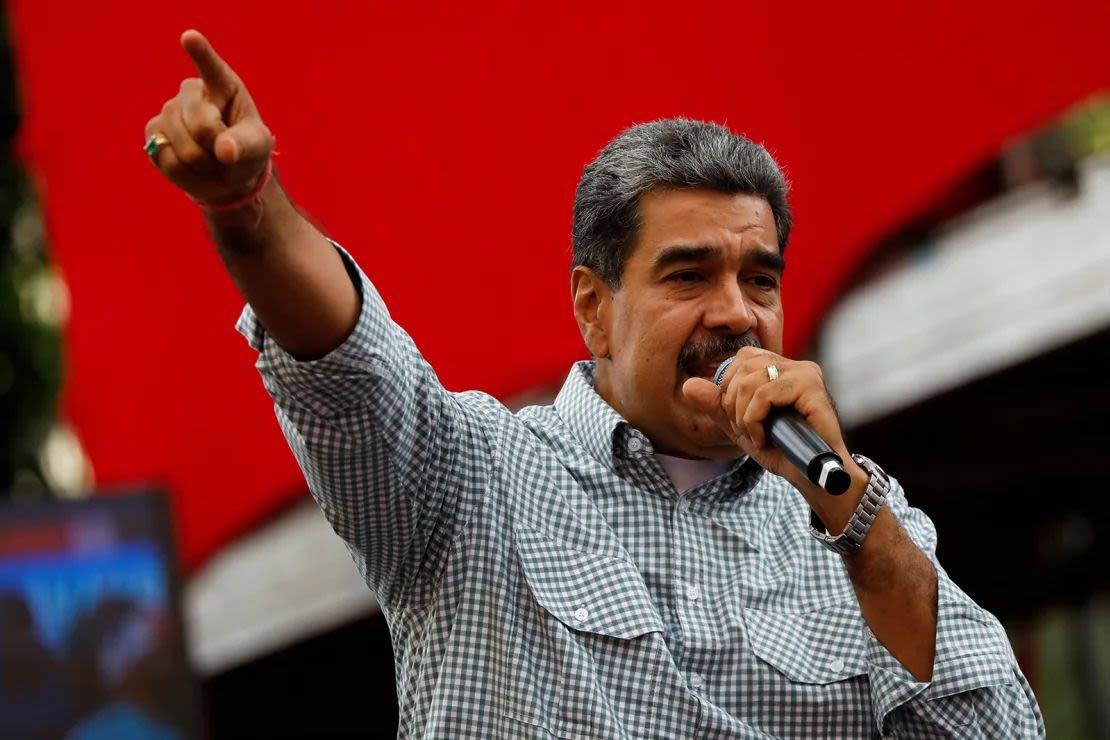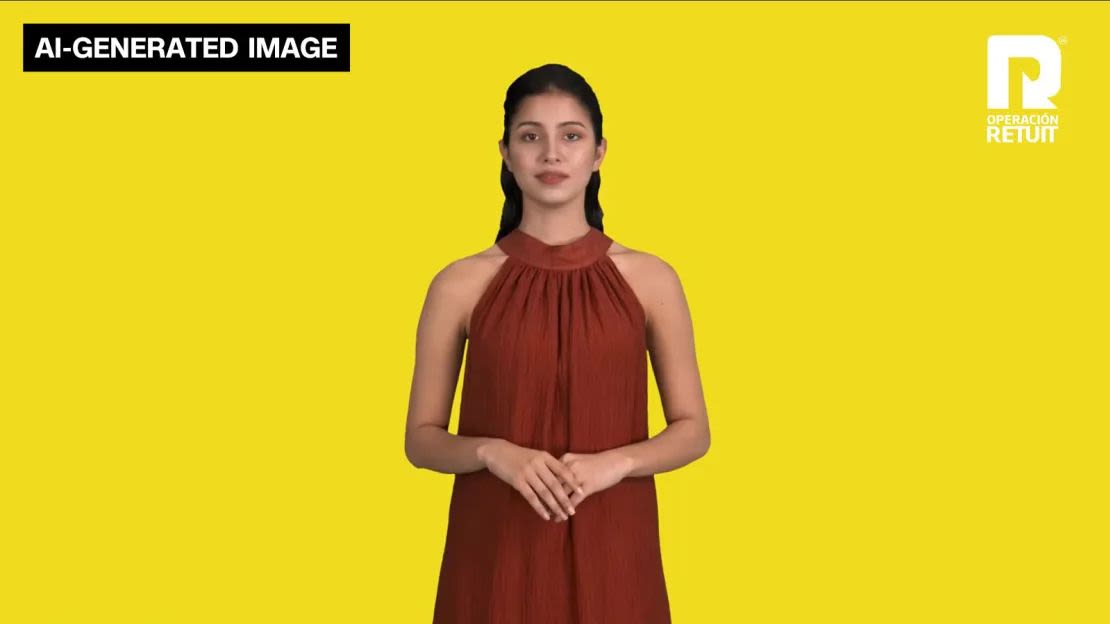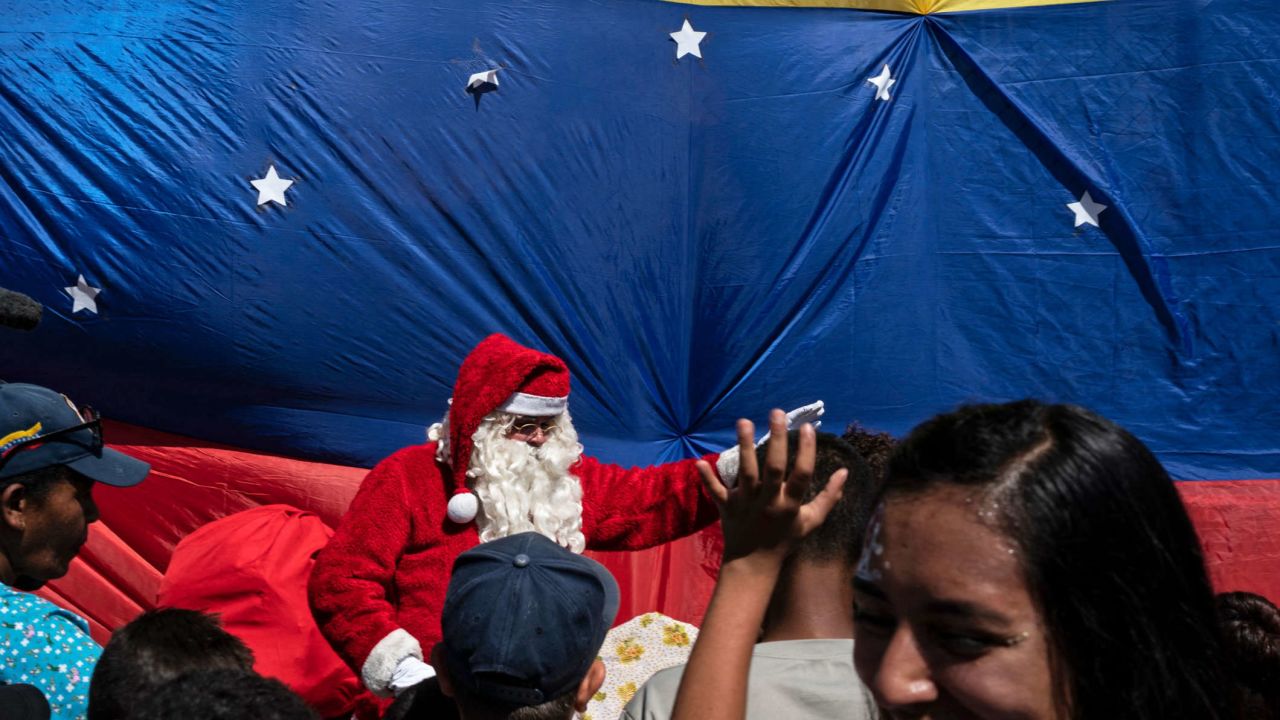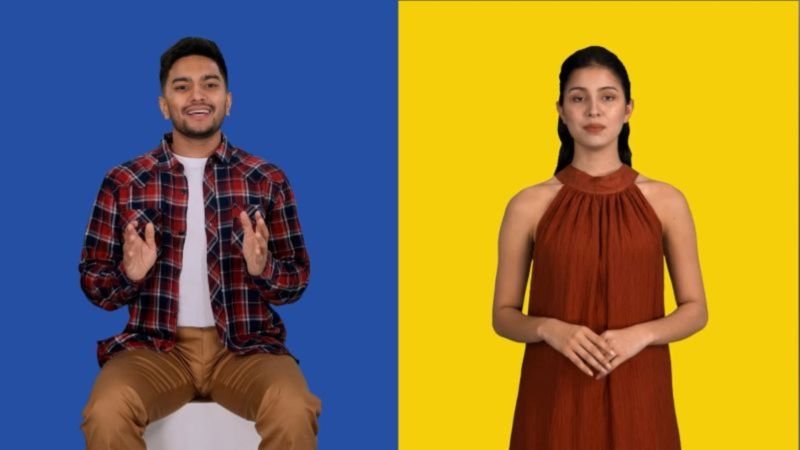(CNN) – Hello, says the news anchor as she effortlessly switches from Spanish to English to give her audience a rundown of the day’s biggest news.
With clear intonation, elegant looks and kind but serious expression, she looks like the very image of a news anchor. Except, perhaps, for the name.
When it is presented as “La Chama” – and its co-presenter is announced as “El Pana” – the viewer receives the first indication that there is something more to this newscast than meets the eye. Then he adds: “Before we continue, in case they haven’t noticed, we want to tell them that we’re not real.”
Welcome to “Operación Retuit”, a news program based on artificial intelligence (AI) and created by a group of media organizations that want to protect their real-life journalists from the repression launched by the Government of Nicolás Maduro after the controversial elections in July.
While in much of the world journalists see the use of AI as an imminent threat to their jobs, in Venezuela, where showing your face in a story can land you in jail, many see it more favorably, as a protection.
“At this moment, being a journalist in Venezuela is a bit like being a firefighter,” explained Carlos Eduardo Huertas, a Colombian media operator who coordinated the launch of “Operación Retuit.”
“It is necessary to attend to the fire even if it is dangerous. La Chama and El Pana want to be instruments for our firefighters: we don’t want to replace journalists, but to protect them.”
After all, as El Pana reassures in a clip, “even though we have been generated by AI, our content is real, verified, of high quality and created by journalists”.

This leap into the new world of technology is because, since the controversial re-election of Maduro—a result that has been widely questioned by the opposition and has caused widespread skepticism abroad—journalists in the country have found that the informative work is increasingly dangerous.
According to Espai Públic, a Venezuelan organization that monitors press freedom, at least 16 journalists have been detained in the government crackdown that followed the election and the national protests that erupted in its wake. All but four of them remain behind bars. Some face charges ranging from terrorism to incitement to hatred, while others don’t even know what they’re being accused of. Others had their passports suspended.
The United Nations speaks of a “climate of fear,” while many journalists in Caracas began working in pairs, sharing their whereabouts with loved ones and memorizing the numbers of their lawyers just in case. .
The Government has done little to dispel the fear; rather it has encouraged it. Although several government agencies did not respond to CNN’s requests for comment for this article, Maduro recently bragged about attacking his critics with “Operation Toc-Toc,” a nod to the sound of the services of Government security knocking on the doors.
With this backdrop, the idea of ”Operation Retuit” emerged, explains ‘Roberto’, editorial director of a Caracas digital publication that is part of the group that supports it.
“We started removing signatures, transferring all our conversations to Signal (encrypted messaging app), but there’s not much you can do,” said Roberto, who asked CNN to use a pseudonym out of fear for his safety. Although none of its reporters have been arrested yet, two employees left the publication last month for fear of what might happen to them, Roberto said.
Among their other considerable skills as news anchors, La Chama and El Pana are simply fearless.

Restrictions on freedom of expression in Venezuela are nothing new: Government censors have been controlling radio and television programs for a long time, threatening to take them off the air if they express content against Maduro, while that access to the paper is heavily regulated for print publications, and local Internet providers blacklist the URLs of news portals not aligned with the Government, such as Roberto’s.
Because of these restrictions, most Venezuelans get their news through social media, with WhatsApp threads being the “most useful” information channel, according to a report published in March by Consultores21, a company opinion polls based in Caracas.
This is where the Operación Retuit format comes into play, designed specifically to be shared on social networks. Instead of focusing on live broadcasts or written articles, their digitally created avatars are limited to reading the news in clips that can be posted on social networks like Instagram and Facebook, or downloaded and forwarded on WhatsApp and other messaging services. (Sharing the clips on X is more problematic, as Venezuela banned use of the app altogether when Maduro accused tech tycoon Elon Musk of being part of a neo-fascist plot to overthrow the government.)
While this makes it harder to control how much traffic Operación Retuit generates, it adds another layer of security because it makes the video harder to track, according to Roberto.
Dandy is very aware of this need for security, explaining to CNN that “even the photos of the demonstrations must be distorted because the Government can use them to locate the citizens protesting the election results”.
“More than 1,500 people have been arrested,” adds El Pana, citing figures published by the Criminal Forum, a Caracas NGO that is also a trusted source for CNN.

That Maduro advances the date of Christmas is an attack on the Catholic Church, says an expert
Despite the enthusiasm surrounding the project, some remain skeptical that hiding behind an avatar will be enough to keep the long arm of the Maduro government at bay.
“It is absurd to think that it is a security tool. It’s a smart idea, and I hope it lasts forever,” said Shelly Palmer, a professor of Advanced Media at Syracuse University who has worked extensively in artificial intelligence.
“But I wouldn’t want anyone to believe for a second that by creating an avatar and creating a fake voice, or by cloning someone else’s voice, you are hiding. Not at all – you are 100% exposed. Unless you’re an absolute expert at covering your tracks digitally, there’s nothing stealthy about it,” he told CNN.
Despite these doubts, the initiative is gaining supporters. Huerta told CNN that in addition to the Spanish version and the recently launched English version of the service, his team wants to make content available in Russian, Chinese and other languages to reach audiences in countries where the governments of which are among Maduro’s strongest allies.
Organizations involved in press freedom in Cuba and Nicaragua have reached out, he said, indicating widespread interest in using AI as a tool for freedom of expression in authoritarian settings.
This does not mean that Roberto, Huerta and the many journalists whose work is included in the reports of La Chama and El Pana are not aware of the risks. While Roberto is keen to highlight the difference the initiative has made to newsroom morale, he acknowledges what he and his team are up against.
“We continue to live in Venezuela and, at the end of the day, we run risks despite all the measures we can take,” says Roberto.
It is a risk that cannot be underestimated. As regular listeners of La Chama and El Pana will know, two more reporters have been arrested in the last two weeks alone.



